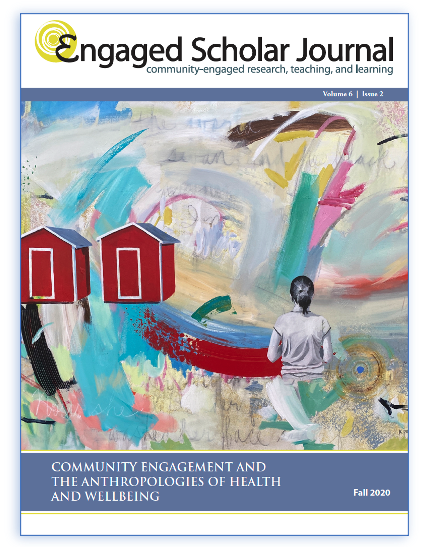A Change of Leadership for the Engaged Scholar Journal
DOI:
https://doi.org/10.15402/esj.v6i2.70766Keywords:
Canadian engaged scholarship, Engaged Scholar JournalAbstract
In the Exchanges, we present conversations with scholars and practitioners of community engagement, responses to previously published material, and other reflections on various aspects of community-engaged scholarship meant to provoke further dialogue and discussion. In this section, we invite our readers to offer their thoughts and ideas on the meanings and understandings of engaged scholarship, as practiced in local or faraway communities, diverse cultural settings, and in various disciplinary contexts. We especially welcome community-based scholars’ views and opinions on their collaborations with university-based partners in particular and engaged scholarship in general.
In this issue, we discuss the recent changeover of leadership at The Engaged Scholar Journal with Dr. Natalia Khanenko-Friesen, who has recently left the University of Saskatchewan to assume new posts at the University of Alberta, and Dr. Lori Bradford. Managing Editor Dr. Penelope (Penny) Sanz takes both through a conversation about the inception, current state, and future goals of the journal, and their reflections on engaged scholarship as a career.
Downloads
Published
How to Cite
Issue
Section
License
Authors who publish with this journal agree to the following terms:
- Authors retain copyright and grant the journal right of first publication with the work simultaneously licensed under a Creative Commons Attribution License CC BY 4.0 that allows others to share the work with an acknowledgement of the work's authorship and initial publication in this journal.
- Authors are able to enter separate, additional contractual agreements for the non-exclusive distribution of the journal's published version of the work (e.g., post it to an institutional repository or publish it in a book), with an acknowledgement of its initial publication in this journal.
- Authors are permitted to post their work online (e.g., in an institutional repository or on their website) after the publication of their work in the Engaged Scholar Journal.
- Please note that while every opportunity will be taken to ensure author participation in the editing process, due to time constraints final copyediting changes may be made before publication to ensure APA adherence throughout all submissions.




